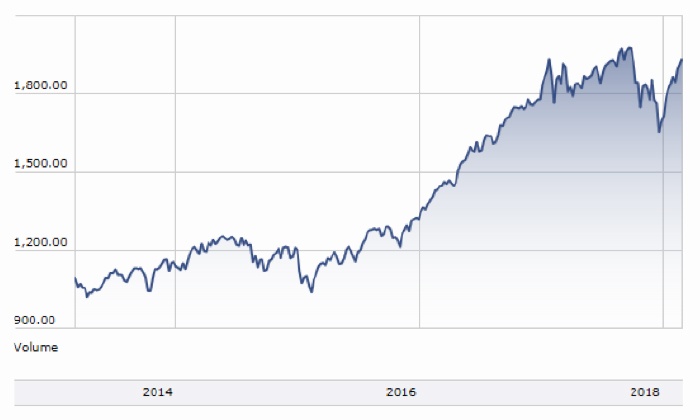
Have you ever wished you were an early investor in Apple or Amazon or some other well-known tech name that has shown enormous growth in shareholder value since its inception?
A relatively new investment area known as “exponential technologies” is drawing a lot of investor interest. While some individual companies in this area have had rapid growth in their share prices, the good news is that the overall sector does not look like it has sky-high valuations. Nor have early returns for subsector ETFs been prohibitively strong, still leaving growth for new investors.
Deloitte Consulting says, “Exponential technologies … evidence a renaissance of innovation, invention, and discovery. Such breakthroughs—innovations progressing at a pace with or exceeding Moore’s Law—have the potential to positively affect billions of lives.”
The area is also known by some as “disruptive technologies” and includes technologies such as artificial intelligence (AI), robotics, cloud and quantum computing, blockchain (behind crypto-currencies), “big data” science, drone technology, virtual and augmented reality, alternative energy systems, digital biology and biotech, digital medicine, additive manufacturing (including 3D technologies), autonomous vehicles, fintech, nanotechnology, and other fast-growing disciplines.
According to Singularity University,
In September 2018, Barron’s commented on the “unprecedented overhaul by S&P and MSCI of their Global Industry Classification System, or GICS, a widely used taxonomy that carves up the stock market into sectors, industry groups, industries, and subindustries.” As part of this reorganization of sectors, it is becoming a little more difficult to find “pure” evolving technology investments in broad tech-related ETFs. New ETFs have been developed to capture new technology trends.
Barron’s noted,
The Morningstar Exponential Technologies Index was established in 2014 and its broad objectives are described on its website:
TREND FOR MORNINGSTAR EXPONENTIAL TECHNOLOGIES INDEX

Source: Morningstar
